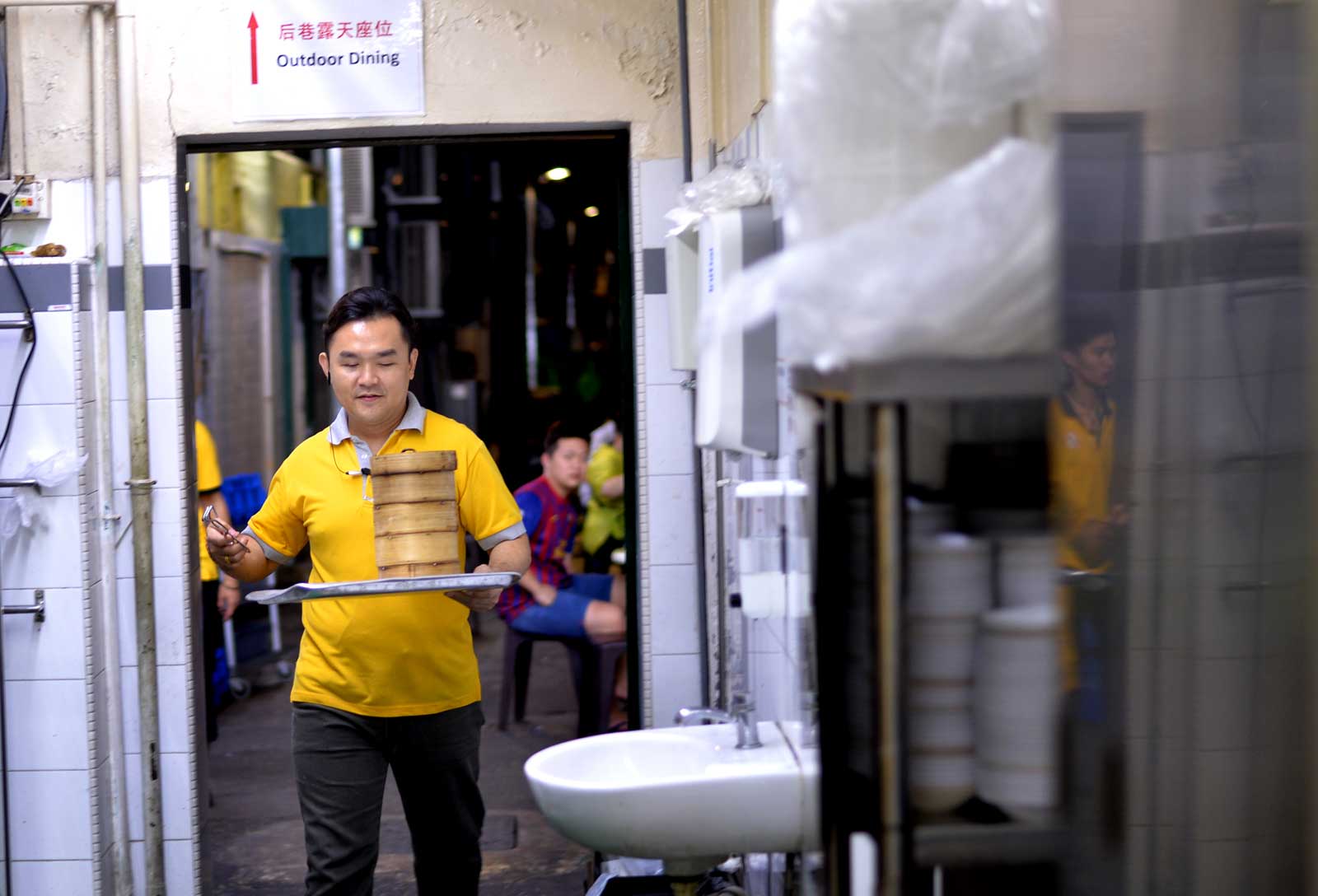His work begins when most are leaving their offices and heading home.
Mr Ng Chee Chong, a manager at Swee Choon Dim Sim Restaurant, starts work at around 6pm.
Despite that, it is clear the 37-year-old enjoys the nightly grind.
Speaking to The New Paper on Sunday, Mr Ng says with a hearty laugh: “It is okay, right? Working at night means I don’t have to wake up so early. Not so hot also.”
For six days a week, Mr Ng manages the serving staff at Swee Choon, a well-known eatery in Jalan Besar.
The restaurant closes at 4am, and by the time he and the staff leave work, it is almost 6am.
It is fortunate then that Mr Ng, a Malaysian, lives just above the restaurant, which is located in a shophouse.
Since he does not have a home here, the restaurant provides him with not just an income, which he declined to disclose, but also free food and lodging.
Mr Ng has got used to sleeping in the day and working at night. He returns home to Johor Baru on his motorbike once a week on his day off.
“Staying here means I don’t have to worry about transport. My commute is just a flight of stairs,” he says.
In his 14 years on the night shift, he has seen different types of people.
From 6pm to 7pm, the restaurant’s 70 tables are usually occupied by families. The crowd starts to thin after that, and those who remain are usually young adults having supper.
It is during this time that Mr Ng and his staff have dinner and take staggered breaks.
He says: “It is important to rest because working the whole night in a restaurant can get tiring. We have to take care of one another. “Besides, we need all the energy we can get from 2am onwards.”
UNRULY CUSTOMERS
That is when the restaurant starts to fill up with a different kind of crowd, mostly customers from nearby bars who stagger in hungry and ready for some dimsum.
“Many of them are our regulars, and they know (our place is open till quite late),” says Mr Ng.
In their inebriated state, they tend to order more food, which is good for business.
But there are also days when some can get unruly. That is when Mr Ng gives them “special attention”.
Such customers dislike waiting and kick up a fuss if their food does not arrive quickly.
To appease them, Mr Ng fast-tracks their orders to the kitchen so that the dishes are prepared as quickly as possible.
“These people, they’re not looking to spend two hours here to chitchat. They just want to eat, pay and go home to sleep.”
Should they become violent, Mr Ng says he will call the police. Luckily, there have been no ugly incidents.
He admits it took him a while to get used to these customers.
“They are so loud. I was new to everything, and it made me a bit nervous,” he says, recalling the days when he first started working the night shift.
But he has come to appreciate the lively atmosphere, which lasts until the restaurant closes.
Apart from his usual two cups of coffee, he says the boisterous customers help him stay awake and alert.
“I see a lot of heartwarming things at night too, like when three generations of Singaporeans have a big meal in the middle of the night, or groups of 30, 40 friends are enjoying themselves,” he says.
“Work is my home; it feels like it is their second home. It is great that I get to share that with them.”
Fewer MCs sine he switched to night shift
As a porter at Changi Airport, 69-year-old Mr Haron’s day starts at 9pm and ends 13 hours later at 10am.
Mr Haron’s story was highlighted by a group of former students from the Nanyang Technological University, who started a campaign called Strangers of the Night in appreciation of those who keep Singapore running past our bedtimes.
Says Mr Haron: “The lack of sleep is difficult, especially at my age. I can feel the tiredness and sleepiness.
“Sometimes I am so tired (after work), I would fall asleep on the train (on the way home) and miss my stop.”
He envies his younger colleagues, whom he says are “different”.
“They are energetic and active, it is hard for me to catch up with them,” he says.
NOT ALL BAD
The hours might be long, but Mr Haron, who has been working the graveyard shift for two years, says it is not all bad.
At his previous desk-bound office job, he says he fell ill frequently and would take medical leave at least twice a month.
But since he started working at the airport, he hardly falls ill.
He says: “I am happy that I can still work and don’t get sick. Actually, funny story, last time I work in the office, every month MC two, three times, but now I work at night, seldom fall sick.”
Also, working at night allows Mr Haron to observe a more diverse set of people – something he enjoys.
“There are so many passengers, so many characters,” he says.
“It is interesting to work at night because the types of people (I see) are different (than in the) daytime.”

This article was first published on July 17, 2016.
Get The New Paper for more stories.






